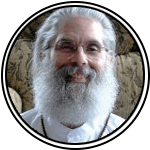The American Meditation Institute (AMI) announced today that it has entered the second year of a research study that examines the impact of a basic daily mantra-based AMI MEDITATION practice on the symptoms of burnout, compassion fatigue and stress in healthcare providers. The second group of participants in this study will be among those who receive their training at AMI’s tenth annual “Heart and Science of Yoga” Mind/Body Medicine CME conference October 23-27, 2018 at the Cranwell Resort and Spa in Lenox, Massachusetts. The study received IRB (Institutional Review Board) approval through the Berkshire Medical Center in 2017.
The principal investigator of the study is Mark Pettus MD, Director of Medical Education and Population Health, Berkshire Health Systems, and the co-principal investigator is Beth Netter MD, Chair of The American Meditation Institute’s Department of Medical Education. According to Dr. Netter, “The study will evaluate how a daily AMI MEDITATION practice can help to provide healthcare professionals a happier, healthier life along with relief from burnout symptoms and an enhanced work/life balance.”
While there are many systems and organizational factors contributing to burnout in the healthcare arena (including electronic health record requirements that increase documentation time, bureaucratic tasks and hours at work), AMI founder Leonard Perlmutter claims that, “It is how we respond to stressors that effects our physical, mental, emotional, and spiritual well-being. While organizational changes are being recognized and implemented, healthcare providers desperately need self-care support so that they can work and live with greater optimism, creativity, health and well-being.”
At this year’s American Meditation Institute “Heart and Science of Yoga” conference, attendees will receive 32 category 1 CME credits through lectures and practicums on: AMI Meditation, diaphragmatic breathing, mantra science, yoga psychology, alleviating trauma and PTSD, resiliency, mind function optimization, Epigenomics, food as medicine, Ayurveda, easy-gentle yoga, lymph system detoxification and the chakra system as a diagnostic tool. New this year, dedicated courses on addiction and pain management, a frequent conference discussion topic and growing global issue, have been added to the curriculum. According to Joel M. Kremer, MD, who is Board Certified in Internal Medicine and Rheumatology in Albany, New York and a recent AMI conference participant, “This teaching has been an enormous benefit in my personal and professional life. I have less stress, more focus, and am able to serve my patients with greater clarity. It becomes surprisingly easy now to recognize the many clinical situations in which patients with somatic manifestations of ‘dis-ease’ could greatly benefit from Yoga Science.”
Noted medical pioneers Mehmet Oz (Dr. Oz), Dean Ornish, Bernie Siegel and Larry Dossey have endorsed Mr. Perlmutter’s “The Heart and Science of Yoga” treatise, which serves as the primary curriculum for the AMI research study and CME accredited conference.
“It is how we respond to stressors that effects our physical, mental, emotional, and spiritual well-being. While organizational changes are being recognized and implemented, healthcare providers desperately need self-care support so that they can work and live with greater optimism, creativity, health and well-being.”
LEONARD PERLMUTTER (Ram Lev)

